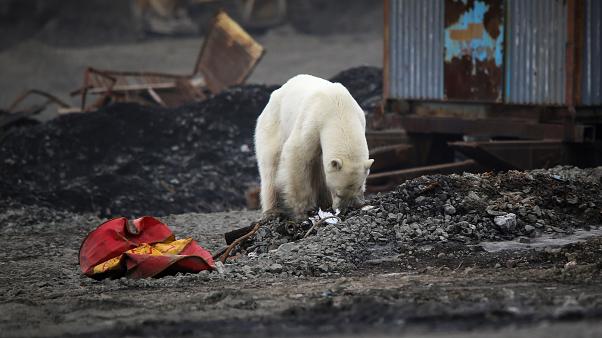Why 2021 offers a window of opportunity in climate change fight
https://arab.news/nhhc2

This year has been a lower-profile period for the climate agenda, with the coronavirus crisis dominating political debate. However, despite growing pessimism about the outlook for global warming, 2021 has big potential, offering a major window of opportunity to progress climate debate and action decisively worldwide.
To help kickstart the year’s activities, UK Prime Minister Boris Johnson and UN Secretary-General Antonio Guterres will on Saturday host a Climate Ambition Summit on the fifth anniversary of the signing of the Paris Agreement on climate change. This event will help drive forward 12 months of action, culminating in the UK-hosted UN climate summit (COP26) next November, when there will be significant pressure to make major progress on implementing and moving beyond the Paris commitments.
Already, the two-week UN conference in Glasgow has been described as the most important gathering on climate change since 2015, with some 200 world leaders expected to attend. The event, which may see US President-elect Joe Biden’s first presidential trip to the UK, is being billed as a crossroads in the battle against global warming and comes in the year when governments worldwide are due to review their promises to cut carbon emissions to align with recent scientific forecasts.
So this will be a major test of the diplomatic mettle of Johnson’s government post-Brexit. And the prime minister wants to use Saturday’s summit to start this process by encouraging countries to adopt tougher emissions reduction targets to limit the global temperature rise to 1.5 degrees Celsius above pre-industrial levels, and ensure that developing countries on the front-line of the climate crisis get increased financial support.
The reason why the window of opportunity in 2021 is so big is, in part, because of the coming into power of Biden, who wants a major reset in Washington’s global warming policy after four years of climate change skeptic Donald Trump’s presidency. Moreover, this will also clear the way for more unified international action via the G7, which the UK hosts in 2021, and the G20, which Italy will chair next year.
With Biden in power until at least January 2025, and possibly for four years on top of that, one of the key tasks of the UN, G7 and G20 will be to seek to bring the US president-elect and his climate envoy John Kerry into any bold new action on global warming. While this will not necessarily be straightforward, the period since the last UN climate summit in 2019 has seen a massive surge of interest in these issues, amid growing signs of global warming around the world, driven by activist groups and individuals such as Greta Thunberg.
The reason why it is so important to act in the 2021 “window” that now exists is there is a very high risk that, under current emissions trajectories and national-level Paris pledges, global warming will exceed the 1.5 C threshold. The roadmap for moving forward is already relatively clear. Firstly, implementation of the Paris deal will be most effective through national laws, where politically feasible. The country “commitments” put forward in 2015, which will hopefully be enhanced in 2021, will be most credible — and durable — if they are backed up by legislation.
In the US, part of the reason Trump was able to unravel the Paris ratification so quickly was that it was politically impossible to get the treaty approved by Congress. President Barack Obama, therefore, instead embedded the agreement through executive order, before Trump laid out his own executive actions, reversing those of his predecessor. In turn, Biden is set to reintroduce Obama’s order in 2021. Compared to executive orders, legislation is more difficult to roll back. And this is especially so when supported — as in many countries — by well-informed, cross-party lawmakers who can put in place a credible set of policies and measures to ensure effective implementation.
There is a very high risk that, under current emissions trajectories, global warming will exceed the 1.5 C threshold.
Andrew Hammond
While the pledges made for Paris are not yet enough, the treaty has crucially put in place the domestic legal frameworks that are crucial building blocks for measuring, reporting, verifying and managing greenhouse gas emissions. Specifically, countries are required under the agreement to openly and clearly report on emissions and their progress in reaching the goals set out in the national plans they submitted to the UN. These must also update every five years, including in Glasgow, to highlight the measures being pursued to implement the goals.
In the future, the ambition must be that these frameworks are replicated in more countries, and progressively ratcheted up. There are already clear signs of this happening in numerous states, as countries seek to toughen their response to global warming.
So 2021 has the potential to help co-create, and implement, what could be a foundation of global sustainable development for billions across the world. This must start with the speedy, comprehensive implementation of the Paris Agreement, but probably needs to move even beyond this and capitalize on the greater climate ambition that the next 12 months will hopefully offer.
- Andrew Hammond is an Associate at LSE IDEAS at the London School of Economics.









































